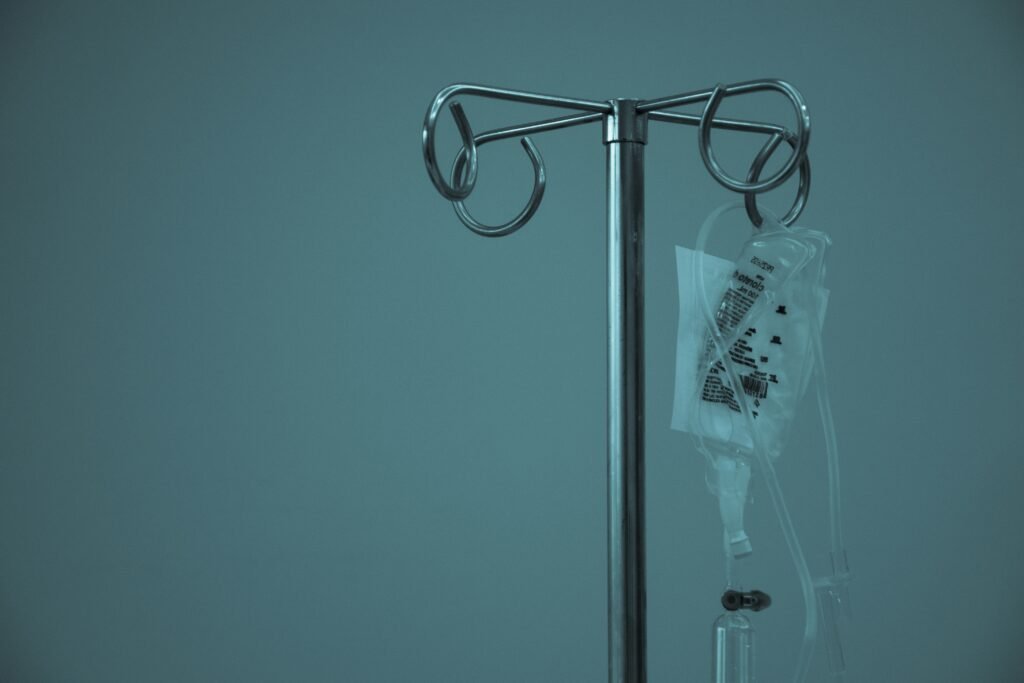You’ve probably heard the saying “age is just a number,” and when it comes to living a long and healthy life, that couldn’t be more true. In this article, we’ll share some expert tips that will guide you towards longevity and durability. Whether it’s taking care of your body, cultivating healthy habits, or adopting a positive mindset, these tips are designed to help you make the most out of every day and increase your chances of living a fulfilling and vibrant life. So, get ready to unlock the secrets to a longer, happier, and more durable existence.

This image is property of images.unsplash.com.
Healthy Diet
Eating a balanced diet is crucial for overall health and longevity. By including a variety of foods from different food groups, you can ensure that your body receives the essential nutrients it needs to function optimally. This means incorporating fruits and vegetables into your meals, as they are packed with vitamins, minerals, and antioxidants that help protect against chronic diseases. Whole grains, such as whole wheat, quinoa, and brown rice, provide fiber and nutrients, while processed foods should be limited due to their high levels of unhealthy fats, added sugars, and sodium. Lastly, moderating your sugar and salt intake can help prevent conditions like obesity, diabetes, and high blood pressure.
Regular Exercise
Engaging in regular physical activity is key to maintaining overall health and prolonging your lifespan. Aerobic activities, such as walking, jogging, swimming, or cycling, get your heart rate up and improve cardiovascular health. Incorporating strength training exercises, like weightlifting or bodyweight workouts, helps build muscle strength and bone density, reducing the risk of age-related conditions like osteoporosis. Flexibility exercises such as yoga or stretching routines improve mobility and prevent injuries. Remember to find activities you enjoy, as it increases your motivation to stick with them, and incorporate exercise as a part of your daily routine to make it a habit.

This image is property of images.unsplash.com.
Adequate Sleep
Getting enough sleep is essential for your overall well-being and longevity. Establishing a regular sleep schedule helps regulate your body’s internal clock and ensures consistent and quality rest. Creating a conducive sleep environment by keeping your bedroom cool, dark, and quiet can significantly improve the quality of your sleep. It’s also important to avoid electronic devices before bedtime, as the blue light emitted can interfere with your sleep-wake cycle. Instead, try practicing relaxation techniques, such as deep breathing or meditation, to calm your mind and prepare for sleep. If sleep problems persist, it’s advisable to consult a healthcare professional who can suggest appropriate interventions.
Stress Management
Stress can negatively impact both your physical and mental health, so it’s vital to effectively manage it. Identifying your stress triggers can help you better understand the situations or thoughts that cause stress and find ways to minimize their impact. Engaging in stress-reducing activities, such as exercise, hobbies, or spending time in nature, can help alleviate stress and promote relaxation. Practicing mindfulness and meditation can also be effective in managing stress by focusing your attention on the present moment and promoting a sense of calm. It’s important to seek support from friends and family during stressful times and consider professional help if needed.

This image is property of images.unsplash.com.
Social Connection
Maintaining strong social connections is a key factor in promoting longevity and overall well-being. Nurturing relationships with loved ones, such as family and friends, provides a sense of belonging and emotional support. Joining social or interest-based groups, whether in person or online, can help expand your social network and provide opportunities for meaningful connections. Volunteering or engaging in community activities not only allows you to give back but also helps you connect with others who share similar interests. In today’s digital age, technology can be used to stay connected with loved ones who may be far away. Attending social events, such as parties or gatherings, allows you to meet new people and maintain an active social life.
Brain Stimulation
Keeping your brain active and stimulated is crucial for maintaining cognitive function and promoting longevity. Reading books or engaging in educational activities, such as attending seminars or online courses, exposes your mind to new information and ideas. Solve puzzles and brain teasers to challenge your cognitive skills and improve memory and problem-solving abilities. Learning a new skill or hobby not only provides mental stimulation but also adds variety and excitement to your daily life. Engaging in social interactions, such as conversations or group activities, helps keep your mind active and supports cognitive health.
Regular Check-ups
Regular check-ups with your doctor are essential for detecting and preventing health issues before they become more serious. Scheduling appointments allows your healthcare provider to monitor your overall health and address any concerns or symptoms you may have. Monitoring health indicators, such as blood pressure, cholesterol levels, and body mass index (BMI), helps identify potential risks and allows for early intervention if necessary. Getting necessary screenings, such as mammograms, colonoscopies, or vaccinations, can detect diseases early and prevent their progression. It’s important to discuss any health concerns or symptoms with your doctor, as they can provide guidance and appropriate treatment options. Lastly, following recommended preventive measures, such as staying up to date on vaccinations and practicing good hygiene, helps protect your health and prolong your lifespan.
Maintain an Active Lifestyle
Avoiding a sedentary lifestyle is crucial for longevity and overall well-being. Incorporate physical activities into your daily routines, such as taking the stairs instead of the elevator or walking or biking instead of driving short distances. Taking short breaks and stretching regularly throughout the day helps prevent muscle stiffness and promotes blood circulation. Standing or walking whenever possible, rather than sitting for prolonged periods, can significantly improve your health and decrease the risk of chronic diseases like heart disease or diabetes. Choosing active transportation options, such as walking or biking, not only benefits your physical health but also reduces your environmental impact.
Safety Precautions
Taking safety precautions is vital for preventing injuries and maintaining your longevity. Installing and maintaining smoke detectors in your home reduces the risk of fire-related injuries or fatalities. Using seat belts and child safety restraints when traveling in vehicles helps prevent severe injuries during accidents. It’s essential to wear appropriate safety gear, such as helmets or protective clothing, during activities that pose a risk of injury, such as sports or construction work. Securing your home against burglaries, such as by installing security systems or locking doors and windows, promotes a sense of safety and reduces the risk of theft or harm. Lastly, practicing caution while driving and crossing the road, by following traffic rules and staying aware of your surroundings, can prevent accidents and ensure your safety.
Hydration
Proper hydration is crucial for maintaining optimal bodily functions and supporting overall health. Drinking an adequate amount of water daily, typically around 8 glasses or 2 liters, helps regulate body temperature, aids digestion, and supports healthy skin. It’s important to limit alcohol and caffeine intake, as they can contribute to dehydration. During physical activities or in hot weather, it’s essential to stay hydrated by drinking water or sports drinks to replace fluids lost through sweat. Consuming water-rich foods, such as fruits and vegetables, also helps contribute to your hydration levels. Monitoring your urine color is a simple way to check your hydration status – a pale yellow color indicates good hydration, while dark yellow or amber signals dehydration.
By following these expert tips for longevity and durability, you can enhance your overall well-being and increase your chances of living a long and healthy life. Remember to make gradual changes, incorporating these habits into your daily routine, and consult with healthcare professionals for personalized advice and guidance. Your journey to a healthier and more fulfilling life starts with small steps, so embrace them wholeheartedly and enjoy the remarkable benefits that come with prioritizing your health and well-being.
